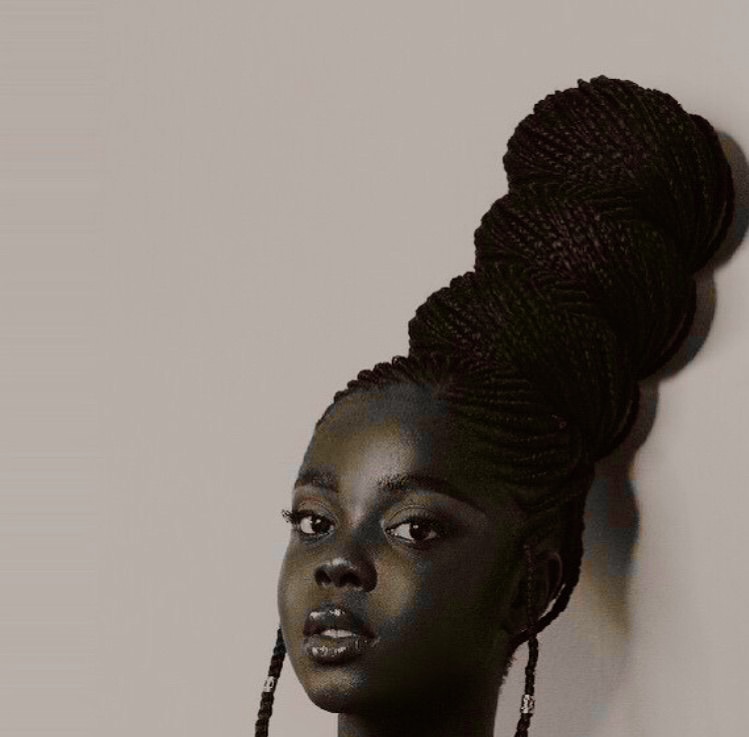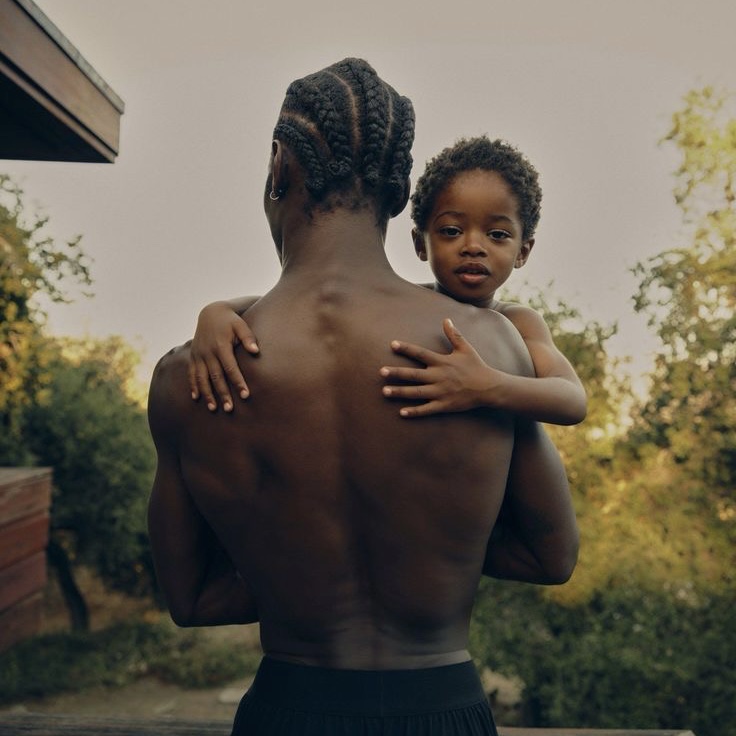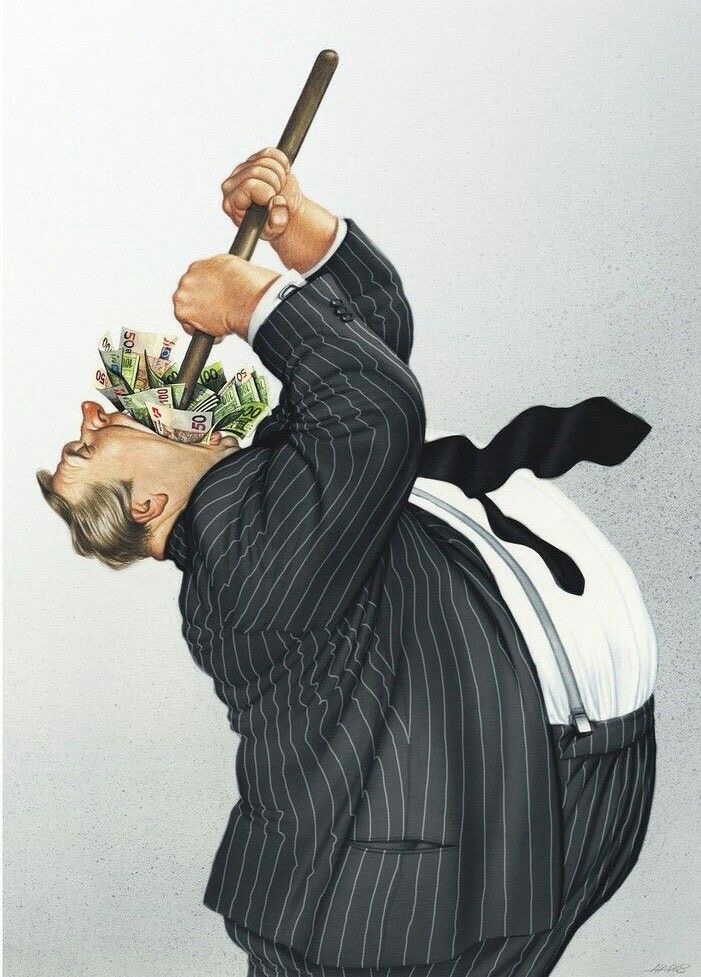CAYDEN BROWN: Hello?
KELSI ONAE BUTLER: Yes?
CAYDEN: I’m excited. The most recent interviews I’ve had are making this project come together so well. Thank you for being apart of it!
KELSI: Of course! I just thank you for thinking of me and including me in something so inspiring and motivational. I hope there’s more to come.
CAYDEN: Oh, Absolutely! I’ve been watching you and knew I had to reach out when it would be to create something so needed at this time. I appreciate your kind words and I’m so glad that you were so willing to hop on.
I always say that this is my favorite part of the interview because it’s the part where we just shower eachother with love. I’m big on Black affirmation and I think these unscripted moments are extremely rare and valuable. That’s what I want to bring to Trespass.
KELSI: Yes! Raw and uncut is what people need. Keep going for real. I’m extremely proud.
CAYDEN: Thank you so much. I’m so proud of you too!
CAYDEN: I was just saying like, it’s unusual for people our age alone to be doing the kinds of things that we’re doing so for us to be black as well, double minorities, I think there’s definitely something to be said about that.
KELSI: Yes, I believe that half the reason why most of us don’t come forward is because we’re not only that we’re scared of the outcome, but scared to be judged by others.
CAYDEN: So true.
KELSI: That plays a big part of why most of us are not going forward and trying to put a foot forward in helping not only our community, but the world around. So I think for you and I to be so motivated to change the world is something that definitely needs to be recognized. And I think just the world is so focused on other things, don’t really look at the great things that we’re trying to do. And that need to be done. I think it definitely needs to be recognized and put on the forefront and you never know who else want to join the fight. So I think we were blessed enough to ocupy the platform and the opportunity to showcase and bring awareness to the problem.
CAYDEN: What you just said was profound, because there’s so much there that is just that’s true. And I think what you said about- let’s just start there- with kids being afraid to be judged. I think grown adults go through that same thing. Because when you do step out, I even had that happen to me, like people, people rag on you and make you seem stupid for having any ideas. Because they can’t see themselves doing anything like that. And, once again, as a child, we’re not supposed to break the cycle. I don’t follow the rules.
KELSI: YES!
CAYDEN: They don’t want us to step out. So it’s a crazy idea when we say we’re gonna do this and that.
KELSI: Yeah, I believe that is definitely, like people looking at it and be like, “What are they doing” Almost, and “why are they even attempting to do this when they know it’s not going to bring around change?” I think in order for change to happen, you have to do things that make you uncomfortable. You have to step out and branch out. And I think we worked so hard trying to accomplish something but I think we should be working hard to change people’s opinions and their mindset. Because in order for us all grow on a journey that we are trying to set, we have to all be on the same thinking pattern. So I think support comes in as a big issue as well. When we don’t feel supported, we get discouraged and quit.
CAYDEN: That’s true!
KELSI: Yeah, most definitely.
CAYDEN: Absolutely. Well, I believe that you have to be able to support yourself and have the endurance to move, no matter if anybody’s behind you or not. If you’re doing it for the right reason, you’re going to do it with or without a crowd.
KELSI: I definitely agree with that. When I was speaking about having a team behind you, I kind of feel like I was going against what I believe in, because at times, I didn’t always feel supported. And those were times where I felt motivated the most,
CAYDEN: Mmm!
KELSI: Because I feel like “even if someone says, I don’t believe in you, and I don’t believe you can do it,” it makes me want to do it more. So I believe that when you don’t have that support, it’s for the right cause, you know what I’m saying? I feel like, the more that you’re not supported, the more that you have to be motivated for your goal! Because a lot of people are gonna judge what you’re doing. A lot of people want to talk about what you’re doing. But you have that vision, and you have that goal, so why let them stop you from reaching where you know that you’re supposed to go? And I also feel like having those people talk about you is a part of your journey.
CAYDEN: Absolutely!
KELSI: It’s apart of building the motivation, the discipline, the qualities that are gonna lead you to success. That goes for whatever you’re doing. So, I feel like not having that support and getting that backlash, you know, just failing, you have to fail to to succeed,
CAYDEN: Yes!
KELSI: You have to see the downside to succeed. So, you know, even like, I feel not supported right now, but I feel like now that I’ve met you, And we are we have the same mindset, I’m most definitely feeling support.
CAYDEN: Good! I’m glad. You know you got me in your corner, as do all of the beautiful people who don’t have the resources they need.
KELSI: Thank you.
CAYDEN: So, what advice do you have to all the black children out there? We have so many ideas. We have so much good input. And I feel like, even our own community sometimes shuns our children, and tells our kids: “No, Shut up. You aren’t old enough to have an opinion. You don’t know what you’re talking about.” This, that, and the third. And that’s something I grew up not believing in. That’s something I grew up knowing that when I had children, I would break that cycle. I’m not going to EVER tell my child that their ideas are not important to me.
KELSI: My advice would be to shut out the negativity. Period.
CAYDEN: No matter who it comes from?
KELSI: No matter who it’s from!
CAYDEN: HMMM.
KELSI: Because, at the end of the day, not only did God give you this vision, you believe in his vision. And so we you have the mindset, what other people say, and how much they try to down you, does not matter. So my advice is just to keep pushing, and also just to be true to yourself! And the main thing is just to never give up. I feel like growing up as a black kid, you’re gonna always be looked down upon.
CAYDEN: Yes.
KELSI: So I feel like being looked down upon should be your strength and your motivation. And, so I’m the type of person that no matter how I feel, no matter who’s around, I’m going to speak about how I feel. I’m going to be honest about how I feel and I’m gonna to speak about it. And this is another piece of advice. Do not hold things in. Speak about it, speak about it, speak about it. That’s the only way that things are gonna change is if you keep speaking about it. Don’t be afraid of the outcome. Don’t be afraid of anything that you may face. Just speak out. Fight. Because at the end of the day, whether things work out or not, as long as you can say, “I did what I need to do. I moved the ball forward.” That’s all that matters.
CAYDEN: Kelsi, I love everything you just said! I just had to truly listen. I think what you just said about, “don’t be afraid of what the consequences will be.” I think that’s a lot of the black community’s problem, especially with our children. We’re always- we know something is wrong, but we’re afraid to speak up about it. Because we know what’s gone happen to us. We know what the repercussions are. And that’s why there’s people like me, you in the world, who God ain’t put the spirit of fear in our hearts.
KELSI: MHM!
CAYDEN: And we gone lead that. Imma be on the FRONTLINE. Every time.
KELSI: And not backing down!
CAYDEN: Nah! You not ’bout to intimidate me.
KELSI: The world has definitely instilled fear into us.
CAYDEN: Yes! That’s how they kept winning!
KELSI: Yes. We can’t be scared anymore.
CAYDEN: This is starting to make my blood boil.
KELSI: [Laughs] Yes.
CAYDEN: This is a message to our black children.
KELSI: We can’t keep focusing on changing our parents’ mindsets and we definitely can’t focus on the older generation. We have to start building from the bottom to the top. We have to start with our kids before we work on our parents, because we have the rest of our life on this Earth. You know, they’ve lived. So now we have to insist on working on our younger generations.
CAYDEN: That’s absolutely the truth. LISTEN UP. Dear Black child, The change that you want to see has to start with you. All this rah-rah with the Congress- and of course, that’s affective, because there are still things up there that need to be changed. But at the end of the day, we’ve been fighting the same fight for YEARS. Centuries. The same fight. And what needs to change, the only thing that’s going to change is our future. Which starts with our children. Because, again, fear has been ingrained into us, so we’re still operating the same way now. And so, if we can change our mentality as a community, then our children will grow up and take those positions and we won’t have these problems. It is that simple.
KELSI: Yeah. Like you said, it starts with us.
CAYDEN: It starts with us. And I think that’s something that we haven’t fully come into yet. There are so many- and I was just talking about this- there are so many black people who do a lot of complaining. And I was one of them! I was like, “I hate this country, blah, blah, blah. This is ridiculous” all the time. “They always, blah, blah, blah.” But, what was I doing, Kelsi?
KELSI: Not doing a thing to change it.
CAYDEN: [Laughs]
KELSI: So, that’s what I believe in, like, I feel like you cannot speak about what you don’t like if you’re not putting in to change it. Because I can sit here all day and say, “Okay, I don’t like how the government is not putting out enough money for mental health. And I don’t like how the government is not supporting mental health.” But at the same time, I’m not doing anything to stop the government. I’m not going to put my influence on the situation.
CAYDEN: Yep.
KELSI: So, how exactly do I have the right to say that I’m fighting for mental health and I’m not doing anything? Or putting in no effort to stop the situation?
CAYDEN: Absolutely. And that’s what I said in my interview with a Voyage Michigan, in the article they wrote about me, I said, “The work that I do is not on Instagram and it’s not on Twitter.” ‘Kay? What y’all see on Instagram and Twitter is a SUMMARY. Because what I’m doing, is I’m sitting in meetings with grown adults in these district offices and I’m getting stuff fixed. All people do is sit on the internet and talk. And this type of talk is different that’s going on on Trespass, because we’re addressing the issues and we’re providing a plan of action. It can’t just be complaining.
KELSI: This is how I feel! I feel like everything does not have to be brought to social media. Even though social media is a bigger platform,
CAYDEN: Uh huh.
KELSI: What you’re doing behind closed doors– that is what’s going to help open up the World’s Vision. And so, when you say that, People look at Instagram and say whatever because speak their opinions, but behind closed doors, you’re working 10 times harder.
KELSI: Yes!
KELSI: So people’s opinions really don’t matter because you know what you’re doing. You know, the work that you’re doing. So I feel like social media has its pros and cons, but as long as you know what you’re doing, all the rest of that stuff don’t matter. Like, you know, I’m showing that I’m having these mental health functions and I’m showing that I’m trying to bring about awareness on mental health. But, behind closed doors, I’m working 10 times harder than what I show.
CAYDEN: Exactly. Exactly. And I think also, people get that mixed up when they see stuff on social media and think it’s easy, because I only show you a portion of it, I show you the tip of the iceberg. And there’s so much more that had to go into that.
KELSI: Yes.
CAYDEN: So, what is your final piece? This talk was top tier.
KELSI: Yeah!
CAYDEN: What is your final piece of advice to all the black children out there who aspire to be the new leaders of the world, who aspire to be people who make change, who aspire to have their voices heard in their own home? What is your piece of advice to them- as we depart?
KELSI: My advice to you guys is to- because that I can say.
CAYDEN: Right.
KELSI: My advice to you guys is, no matter the world’s opinion of you, or even your opinion of yourself! You keep pushing, you keep going. And you just stay motivated. Stay strong. Stand strong in what you believe in. And I also just want to say that, when you find that things are going to help the world, expound upon the things that are going to help your community and your people. Because we are suffering a lot more, especially in the upcoming world. And I think if you want to change how you say want change,
CAYDEN: Be about it!
KELSI: Speak ’till you can’t speak anymore.
CAYDEN: Mhmm.
KELSI: And you stand on that front line and you stand strong. Because at the end of the day, you are black. You are beautiful. And you are next. Your are upcoming. Nobody can tell you different about what you believe in. Nobody can stop you from reaching your dreams. Nobody can stop you from doing anything that you want to do. But yourself.
CAYDEN: Yes!
KELSI: So, I love you guys. I loved this talk. I had an amazing time. And I think that this is something that definitely needs to be shared- if even if we have to go to different states and share it. Even if we have to get on the news and speak about what we speak about, I’m ready. And I’m here to help you guys through whatever you guys need help with. I’m here to be that person on a side for support.
CAYDEN: Thank you so much, Kelsi. This talk was 100% exactly what our black children need right now.
KELSI: Yes! Is there any way I could get a recording of this?
CAYDEN: Oh, I’ll send you the whole- yeah.
KELSI: Okay, okay!
CAYDEN: And the transcript will come out on Friday.
KELSI: Okay. Yes, yes, yes, yes, yes, yes. Yes, I definitely would love to hear everything that we talked about, back again. And I just think that we have to plan something, we definitely have to plan something.
CAYDEN: Absolutely. We got two more years, and then we grown!
KELSI: Yes! And good! I appreciate you for having me, though. I really do. It was so nice talking to you and seeing where your head’s at, where your mind is, and I feel like you’re a very genuine person. I’m excited to see all the work that we can do.
CAYDEN: Same to you! I really think you’re a perfect example of being deeper than the surface- like what you see on Instagram or what you see on social media. Like, when I first followed you, I had no idea you did this stuff. And then you posted about and I was like, “okay, she’s cool.” I talked to you, and I’m like, “Oh my gosh.” You know what I’m saying? I rarely find people like that.
KELSI: Thank you! I feel like experiences make you mature in the mind and you will actually learn a lot. So that’s why I give all my knowledge. So yeah.
CAYDEN: Absolutely. Thank you so much for being here. I’ll speak to you very soon.
KELSI: Of course. Thank you so much.
CAYDEN: Absolutely. Thank you. Bye-bye.
KELSI: Okay. Bye-bye.
Related Posts



